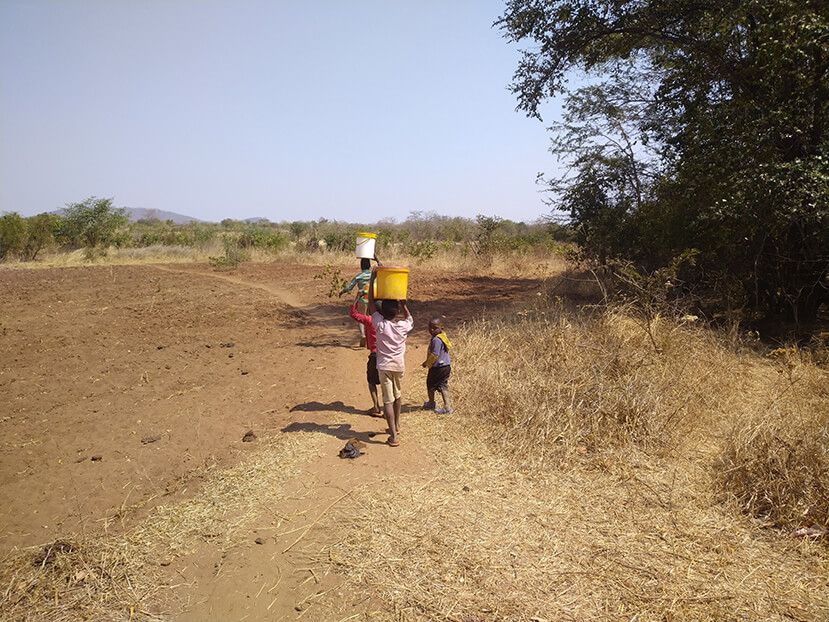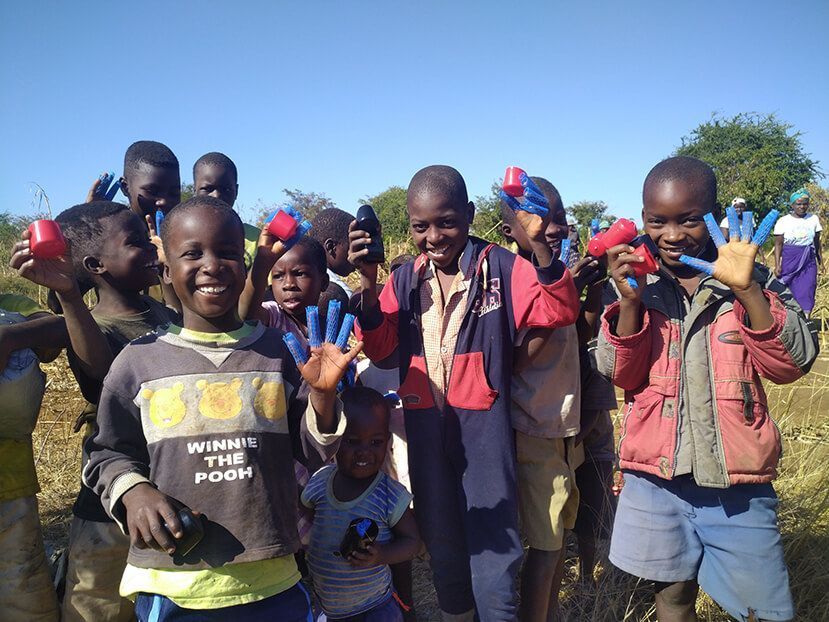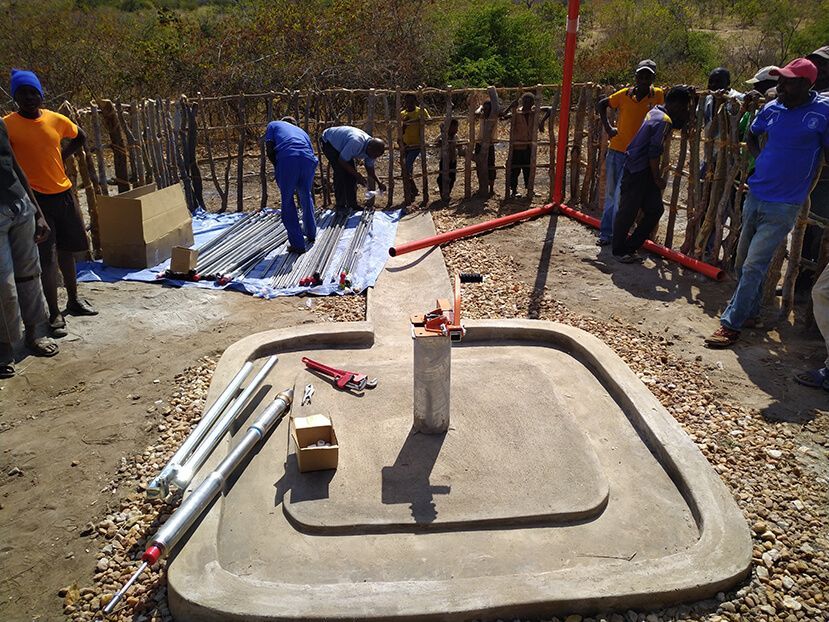Under a bright blue sky, in the dry shrubland of northern Zimbabwe , a small group gathered around a concrete platform and an odd-shaped contraption with two handles. It was a brand new well.
The members of Kanyemba village took turns, two at a time, to crank the well, pulling the water up from its underground reservoir. The new handles were stiff at first, but the more they were used, the easier the job became. Children, women and men all stepped up and took their turn. Anyone who wanted to help was welcome.
As everyone waited and watched for the first drops of water, they sang, danced and clapped. Shouts and cheers and laughter rose as the water began pouring out of the spout and into the bucket below. There were songs of gratitude to the team that installed the well, and to God for providing this source of water.
Safe water. Abundant water.
The Price of Water
Before this well was installed, the village of Kanyemba had no reliable water source. Women and girls had to walk to another village’s well — or to a riverbed, where they dug holes to collect contaminated water. On the long walk back home, they often carried more than 40 pounds of water .
And this was at least once every day.

Without a local well, people in rural villages choose between long treks to other villages or contaminated water from other sources.
TEAM missionaries at nearby Karanda Mission Hospital saw the consequences every day. Patients arrived with waterborne illnesses that could easily kill them. The only long-term solution was helping the villages create new, reliable water sources.
Kanyemba is just one of several communities that received wells through TEAM in 2020 . Eight new wells were drilled in Kanyemba and other locations, and special hardware was installed on these and six other existing wells.
Each community provided a team of builders to help in the installation process. Locals were also trained in simple well maintenance to keep it running. Properly cared for, these wells will last decades longer than the common bush pump.
Deeper, Durable Wells
TEAM implemented the project with Design Outreach , a ministry that helps alleviate poverty through technology development. LifePumps , as these wells are called, were their first major engineering effort and are now found in nine countries.
LifePumps can pump water from depths traditional hand pumps can’t reach. And they are engineered to last at least 30 years with minimal maintenance .
And this, says Greg Bixler, Design Outreach’s CEO, helps build trust.
Communities Built on Clean Water
When a pump can run for decades without breaking down, people experience a mindset shift. They start to realize that water is not only available for them today, but it will also be available tomorrow.
Now, they can invest in seeds for a garden that will need watering throughout growing season. They can build up herds of cattle and goats, because they know there will be enough water to sustain the animals .
Their children can go to school instead of staying home to retrieve water from some far-off location. And more schools will be built, because teachers will come to a community with a consistent water supply.

Most teachers won’t come to a village that doesn’t have easy water access. A dependable well means a whole generation of children can get an education.
Villagers can construct stronger homes from brick, now that they not only have the water necessary to create bricks, but they also have the time to build their houses. Greg estimates that having a local, consistent source of water saves one individual about four hours per day.
“If we can start with something that works really well from the beginning,” says Greg, “it gives the community a big leg up and a head start in a way that they never would’ve had before.”
And building trust in this way, he says, builds relationships over time — and it builds a bridge to the love of God.
“I’ve heard community members in places around the world who have said they now believe in God because they have water in their village,” Greg says . “Because in their minds, they didn’t think that was possible.”
Although COVID-19 restrictions have limited their movements, TEAM missionaries are planning Gospel outreaches in each community that received LifePumps.
A Win for Villages and a Hospital
TEAM missionary Jon Christiansen coordinated the LifePump installation effort. He also oversees maintenance and development of Karanda Mission Hospital nearby. For him, this is the fulfillment of a vision that began about seven years ago.
“While we were mapping out the various phases for the [hospital’s] water system renewal effort,” he says, “I felt led to include one that focused on our surrounding community — especially those villages where the majority of our staff members came from.”

Each village provided a team of builders to help install the wells and learn routine maintenance. With proper training, communities can keep a LifePump running for 30 years.
Karanda Mission Hospital was established in 1961 with the intention to serve the local rural population. But it has since grown to become one of the busiest hospitals in the entire nation of Zimbabwe . Often it’s the only available surgical hospital for the country’s 14 million-plus population.
A clean, reliable water supply is essential to keep Karanda up and running. But the surrounding communities need water, too, and sometimes the strain on the hospital’s water supply is heavy.
Jon says the wells are a win-win for this very reason. First, they directly benefit the communities where most of the hospital employees live. And second, they ease the water supply burden from the hospital, which cares for up to 200 inpatients and 300 outpatients each day.
‘Clean water, safe water’
Gilbert, a resident of Katsande village, is one grateful recipient of the clean water now available in his community.
The existing well in Katsande had started to show signs of corrosion
“We used to drink rust water,” Gilbert remembers. “Many people were suffering.”
Because the well in Gilbert’s community still had plenty of outflow, all it needed was an upgrade to its hardware. Now the life of this well has been extended, and it’s supplying fresh water once again to about 80 households each day .
“This well is very important to us,” Gilbert says. “We are fetching clean water from it, safe water.”




















